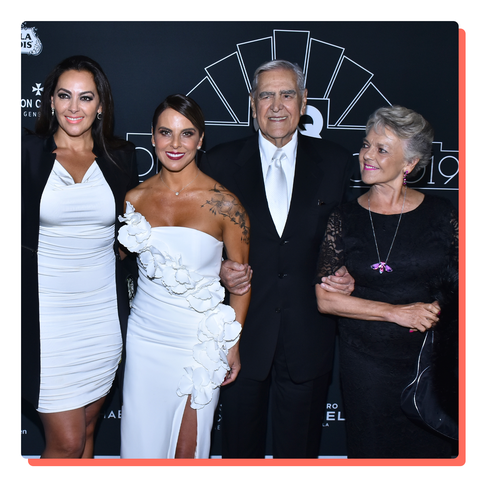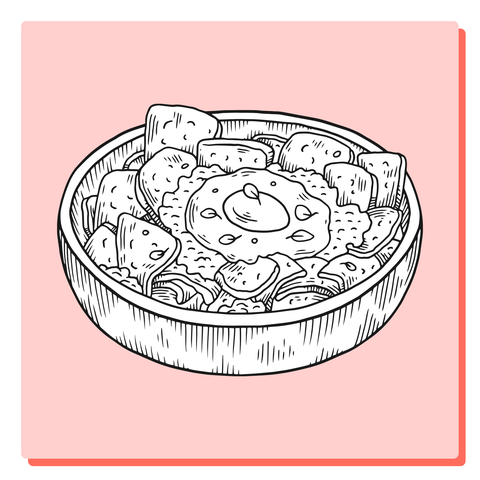In our “Good Housekeeping con” series, we speak with Latinx singers, actors and personalities about what their cultural identity means to them and how their backgrounds have shaped their experiences and successes along the way.
Actress Kate del Castillo has been making a name for herself in Mexico and the United States for over four decades. Following in the footsteps of her father, legendary Mexican actor Eric del Castillo, Kate has earned recognition in the industry among Spanish and English speakers with titles like La Reina del Sur, Under the Same Moon and Ingobernable.
At the age of 19, Kate landed a role on Televisa’s Muchachitas marking her first major telenovela. The next 20 years would help define her as one of the most successful Mexican soap opera actresses before her crossover to U.S. audiences with the PBS drama series American Family, featuring the first all-Latinx cast on TV.
Today, Kate is celebrating the premiere of La Reina del Sur season 3 on Telemundo. While awaiting her character Teresa Mendoza’s triumphant return, the 49-year-old star spoke with Good Housekeeping about how she started her career, the different ways she stays connected to her family and her advice to aspiring Latinx actors.
What was it like telling your dad that you wanted to be an actor like him?
I don’t remember that I literally said that. I just knew I wanted it because that’s all I knew back then. That’s all my dad has done. For me, it was like, “Yes, I want to be an actress but I don’t know if I’m good. I don’t know if I’m going to be as good as my dad.” So, I never told him. I told him that I liked it, and [asked] if he [could] let me go with him to his movies or whatever he was doing.
I started doing clips then commercials and little movies when suddenly I got this huge part in a telenovela. You know how big telenovelas are. Telenovelas mexicanas are everywhere. He was like “Oh, my God.” He never knew where it was coming from. He never had a heads-up.
What is it like releasing your work and seeing your family react to it?
They’re very nice and we’re very close. But sometimes they say, “When did you do this? Now, what are you doing?” They have to keep up with me because thank God I work a lot. They’re always so proud and my dad says, “I see myself in you.”
He always wanted to learn English but he never did. He was too busy working. When he grew up, he was really, really poor so there were no schools in English for him. He said, “Just leave. It’s fine if you’re going to the United States but learn and do everything that I couldn’t do.”
We call each other every single day. If not, we have our family chat so we’re always in touch. They know exactly where I am, and I think that’s really nice. I do it not because they ask me to, but I want to do it. I always say on a date, “If my mom calls, I’m answering, OK?” I wouldn’t dare not answer my mom. It’s very different but I know I’ll always be their little baby. It doesn’t matter how old I am.
How do you keep your culture close to you?
I’m very Mexican and I’m proud. Just being an immigrant, I feel more Mexican. There’s something about it that makes me feel more Mexican. I brag about being Mexican more than I did when I was in Mexico. I really feel rooted in so many ways as a Mexican.
I miss the food and ambiance. Of course, my friends and family. All those things. But on the other hand, that’s the decision one makes at certain points in life. What is it that you want? It comes back to [the fact that] we all have different necessities and ideas.
How did you make the decision to venture into Hollywood?
I didn’t know if I wanted to work in English. I just wanted to have better opportunities. We’re neighbors with the United States, so that was the easiest way for me. I was invited to participate in the PBS show American Family.
The amazing director and producer Gregory Nava was searching for talent in Mexico. He went to the network where I worked and I was the lead of the most successful telenovelas. He was there and he saw me. That’s how I started. I was like, “I love it. This is perfect … I think this is what I like. If it’s English or Spanish, I just want to have better opportunities.”
In Mexico, my name was too big. They would always stereotype me as the leading lady of telenovelas, and I was getting very bored. I wanted to do so much more.
What would your advice be for Hispanic and Latinx actors who want to have a presence in both English and Spanish-speaking industries?
I think that it’s amazing, but I don’t know if the crossover is necessary. You have to follow what you want. I think the American dream is in your heart. It has nothing to do with the map, where you are physically but it’s inside of you. If you dream big, maybe bigger isn’t here in the United States. It all depends on what your craft is.
For me, it was trying to do shows in the United States while speaking Spanish. That for me is La Reina del Sur and Armas de Mujer. It’s a crossover in our own language, which I think is even better. If you’re doing mainstream things, like big and quality shows, why not in your own language?
Just keep doing what you’re doing and be prepared. Get prepared because there is a lot of competition out there. We say in Spanish, “La calle está dura.” (“The street is hard” in English.) The American dream is your heart and every single one of us has different dreams.
What can La Reina del Sur fans expect from Teresa Mendoza in season 3?
Teresa is Teresa, and I will never tamper with that. I love Teresa and the way I love her is the way all the fans love her and look out for her. I will never betray her.
I always say she needs to mature throughout the series but not with her essence. Not in who Teresa Mendoza is as a woman, so I fight a lot for that. You’ll see a third season with a much more mature Teresa but also a fighter for [justice. She’s a vigilante]. I love that about the character.
I wouldn’t complain [about the show ending] because it’s one of the most amazing characters I’ve played in my entire career. But I think there’s a time when you have to let go. As much as I have fun and I love Teresa and everything that [embodies] La Reina, it has to come to an end. I think a third season is perfect for an ending. I don’t know if they want to do a fourth season. But for now, I think this is the last one. The third season ends in a great place.
Selena is the associate entertainment and news editor for Good Housekeeping, where she covers the latest on TV, movies and celebrities. In addition to writing and editing entertainment news, she also spotlights the Hispanic and Latinx community through her work. She is a graduate of CUNY Hunter College with a B.A. in journalism and creative writing.
This content is imported from OpenWeb. You may be able to find the same content in another format, or you may be able to find more information, at their web site.



